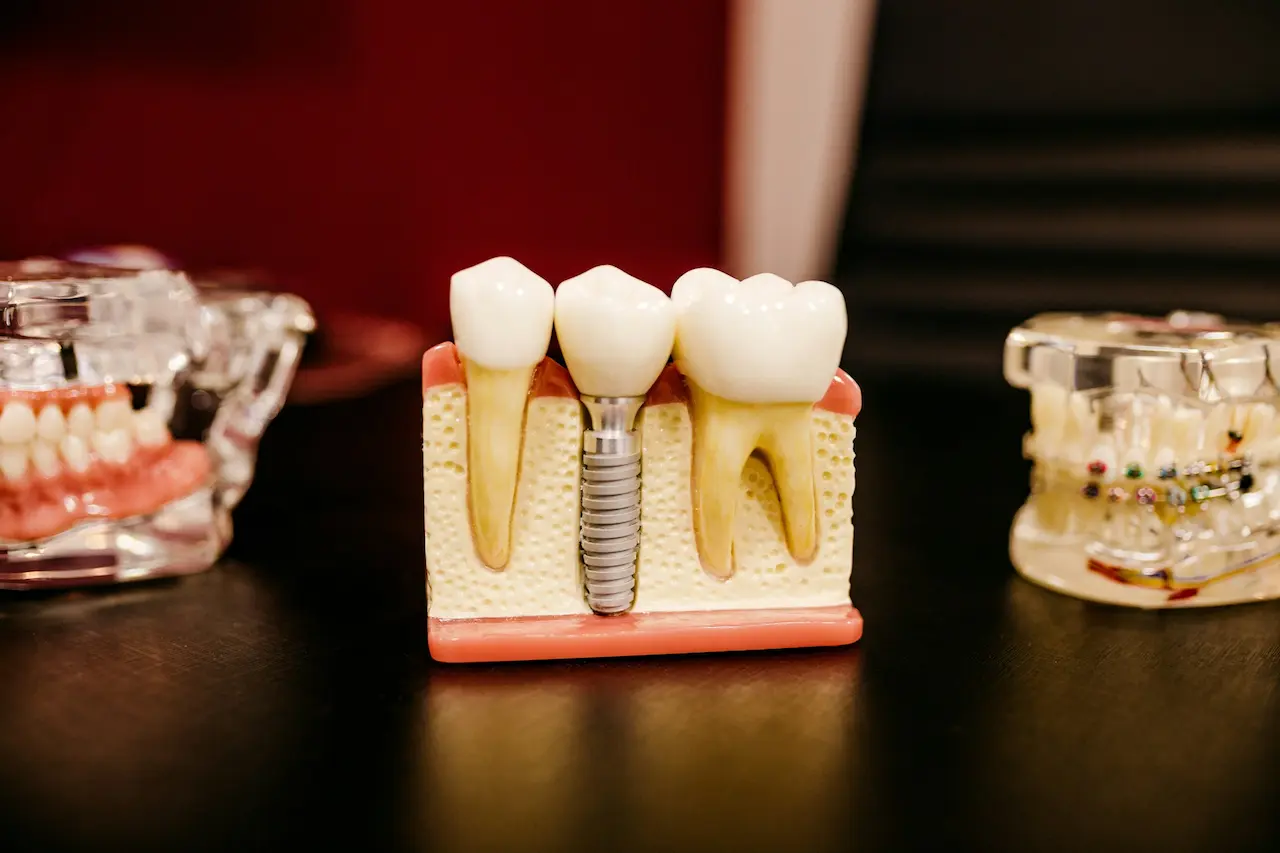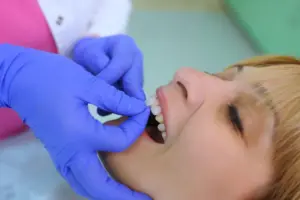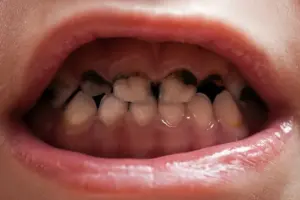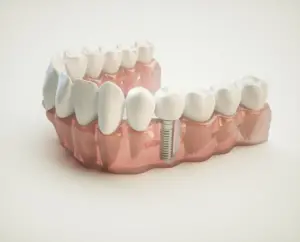Dental Implants: Seven Benefits
Table of Contents
ToggleHow you replace damaged, missing or decayed teeth affects your ability to eat, talk and carry out other daily tasks. Bridges and dentures are the two most common options, but they both have their limitations. Dental implants are a long-lasting, unnoticeable alternative.
Advantages Of Dental Implants
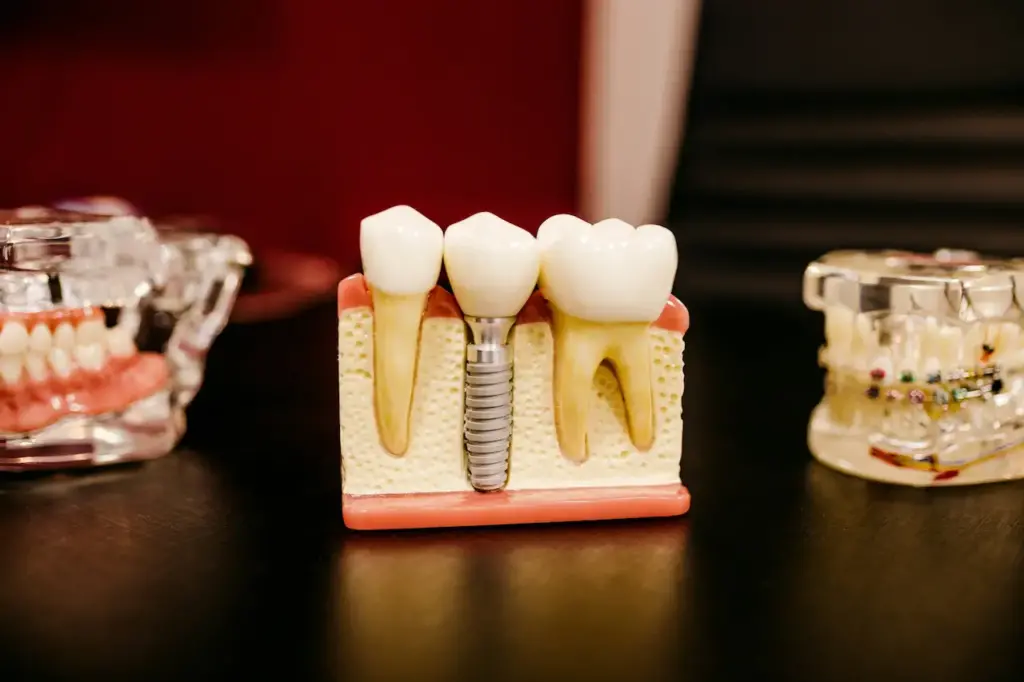
1. Dental implants behave like natural teeth
It is important to have a strong bite force so that you can enjoy the foods you like. However, most artificial teeth only restore a small portion of your original bite force. The bite force of dentures or other teeth replacements, which temporarily attach to the gingiva and existing teeth, cannot be maintained as well as that of dental implants. Dentures that are subjected to excessive stress can cause them to break and cause pain. They may also make it difficult for you to chew normally.
You can restore your former bite force and chewing ability with dental implants. Each implant is permanently attached to your jawbone by titanium posts. This allows them to function and look like real teeth.
2. Dental implants can last a lifetime
Dentures are often repaired just as frequently as dental bridges. Dental implants, on the other hand, offer a solution for missing teeth that lasts up to 25 years. If you maintain your implants properly, they will last a lifetime.
Your implant’s longevity depends on many factors, including the placement of the implant, your oral hygiene and your lifestyle. As with natural teeth, implants in some areas of the mouth will wear out faster than others. By brushing and flossing them like your natural teeth, you can keep them looking real. Smoking, drinking alcohol and opening packages using your teeth are all habits that can cause your implants to wear faster.
3. Dental implants prevent bone loss
You need stimulation for your jaw to grow. When you chew, stimulation occurs before tooth loss or damage. Other replacements that are not attached to the bone can’t maintain bone mass as they move and detach. Dentures, for example, can further erode the jaw by shifting along the bone ridge. You need a permanent solution to protect your bone mass.
Implants are attached to your bone and provide the stimulation needed to prevent atrophy. Dental implants can prevent bone loss by functioning like normal teeth and improving your oral health.
4. Dental implants keep nearby teeth in place
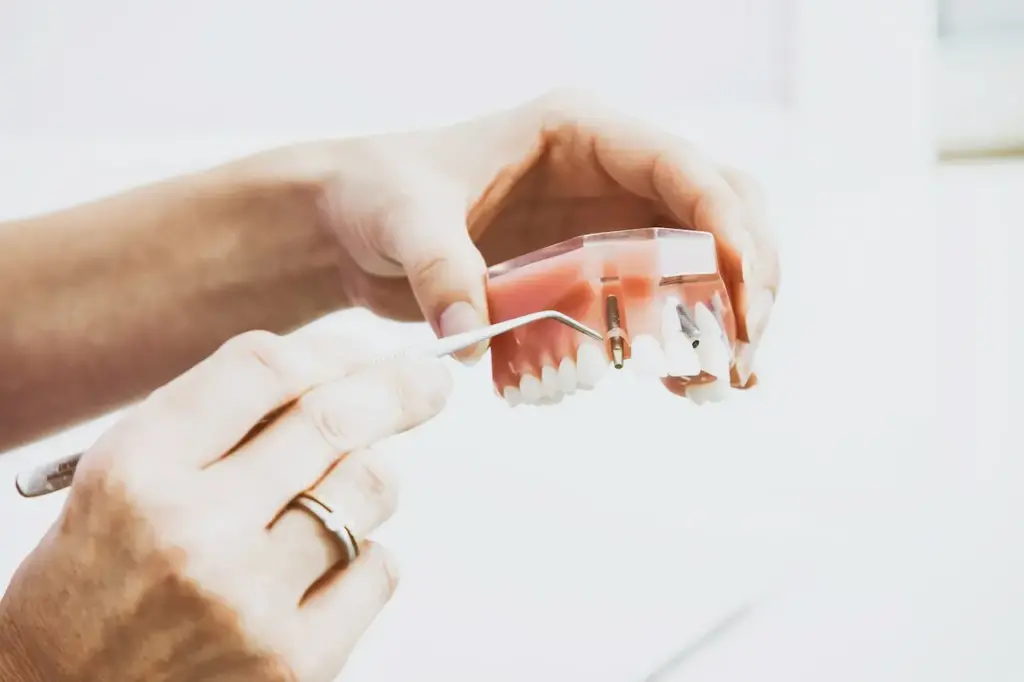
You may have forgotten to wear your aligner or retainer for a couple of days. Then, you found it hard to get back into place. Your teeth can shift quickly. You may feel pain or discomfort if your teeth shift, or you might not even notice the change until you see it. The space left by a missing tooth can cause your teeth to be misaligned. Further complications can be caused by new gaps and crooked or crowded teeth.
Permanent dental implants can help you maintain a straight smile and avoid additional dental work.
5. Dental implants can help you avoid gum disease
Gaps caused by missing teeth are a breeding ground for bacteria. Starch and sugar feed the bacteria which can lead to gum disease. You are at a higher risk of developing gingivitis when you have an abnormally high amount of bacteria in your mouth. Bleeding gums when brushing your teeth is a sign of inflammation.
Untreated gingivitis may progress to periodontitis, an infection of your gums. Periodontitis can also cause pockets to form between your gums and teeth. When your body releases enzymes to fight infection, these enzymes can destroy everything within the pockets including the connective tissue.
Gum disease can cause jaw bone damage and further tooth loss. Filling in the gaps will protect the rest of your teeth from infection.
6. Dental implants can prevent changes in facial structure
You may appear older if you lose your teeth and your jaw atrophies because the structure of your face is supported by your teeth. It is vital to maintain the mass of your bone in your jaw for both your bite force and your appearance. You may see wrinkles or less prominence in your jaw as your facial structure changes because of missing teeth or bone erosion.
It is important to stimulate your bones to maintain your jawline. The implants provide stimulation and support to keep your face shape the same.
7. Dental implants allow natural speech
Certain words can be difficult to pronounce if you have gaps caused by missing teeth. Patients may also have difficulty with some replacement teeth. Patients may worry that their replacement teeth will slip or shift when they speak or smile. Hide your smile, and avoid difficult-to-pronounce terms. This will limit how you interact with others.
Implants that look and feel like natural teeth will stay in place, allowing you to communicate normally.
Dental implants are better than bridges
Dental implants and bridges are often considered by patients as a replacement solution for missing or irreparable teeth. Bridges may be less expensive, but implants are always a better option.
Bridges require more effort to clean and have a weaker adhesive. They also last less time. Bridges are also used to replace one or more teeth and must be attached by capping the adjacent teeth. To do this, your dentist must remove at least two healthy teeth.
Dental implants do not affect the patient’s natural tooth and can prevent unnecessary extractions. Your implants will replace damaged and missing teeth while maintaining your healthy ones.
Dental Implants vs. Dentures
Dentures and dental implants both have their advantages.

Dental implants prevent jawbone loss
Over time, dentures that used to fit perfectly may slip and cause discomfort. Jawbone loss is the cause of denture slippage. Chewing is necessary to stimulate the jawbone and prevent bone loss. Over time, bone loss can lead to facial collapse and wrinkles.
Dental implants can prevent bone loss. They can also help to maintain the youthful appearance of jowls and thin lips.
Dental implants are permanent
Dentures are neither fixed nor permanent. Normally, dentures can be fitted in the mouth by themselves but can become looser over time. They may need an adhesive in these cases to hold them to the roof so that they don’t fall out.
Many people are hesitant to eat certain foods, as they could cause their dentures to slip out while they eat. Some people feel that they must have adhesive on hand to re-glue dentures following a meal. If they don’t have adhesive glue, they might not be able to put their dentures in place.
Dental implants do not move when you are eating or speaking. As the implant is permanently anchored in the jawbone, it does not need an adhesive. You can eat all the meals and foods you normally would.
Dental implants make cleaning your teeth easier
To properly clean dentures, it is necessary to first remove them. In addition to regular dental care, these devices need special cleaning and attention. You can also damage your dentures by dropping them or accidentally scratching them.
An implant that is affixed requires less maintenance. Continue to rinse, brush and floss as usual. Dental implants can also prevent gingivitis or periodontitis as they do not leave gaps that could attract harmful bacteria.

